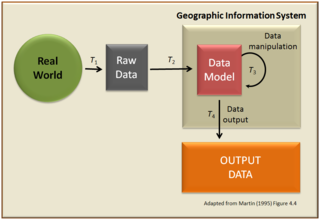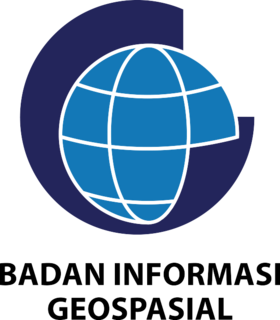| Geospatial Information Regulation Bill | |
|---|---|
 | |
| Parliament of India | |
| Enacted by | Parliament of India |
| Status: Pending | |
The Geospatial Information Regulation Bill, 2016 was introduced in Parliament of India in 2016.
| Geospatial Information Regulation Bill | |
|---|---|
 | |
| Parliament of India | |
| Enacted by | Parliament of India |
| Status: Pending | |
The Geospatial Information Regulation Bill, 2016 was introduced in Parliament of India in 2016.
The Geospatial Information Regulation Bill, 2016 was introduced in Parliament of India in 2016. [1] [2] [3] [4] In the aftermath of the Pathankot Attack of 2016, to regulate the spatial info on maps such as Google Maps, the bill was prepared to restrict mapping by private companies with licensing. The bill was severely criticized for being too restrictive and not practical in its scope attracting severe reactions from industry and other government departments alike. [5] The initial wordings of the draft show the purpose of the regulation:
A Bill to regulate the acquisition, dissemination, publication and distribution of geospatial information of India which is likely to affect the security, sovereignty and integrity of India and for matters connected therewith or incidental thereto. [4]
On 15 February 2021 the Department of Science & Technology released approved Guidelines for acquiring and producing Geospatial Data and Geo-spatial Data services including Maps. [6] These guidelines would largely replace the restrictions proposed within the Geospatial Information Regulation Bill of 2016 by deregulating the sector and allowing collaboration between industry and government agencies. [7]

A geographic information system (GIS) is a type of database containing geographic data, combined with software tools for managing, analyzing, and visualizing those data. In a broader sense, one may consider such a system to also include human users and support staff, procedures and workflows, body of knowledge of relevant concepts and methods, and institutional organizations.
Geomatics is defined in the ISO/TC 211 series of standards as the "discipline concerned with the collection, distribution, storage, analysis, processing, presentation of geographic data or geographic information". Under another definition, it "consists of products, services and tools involved in the collection, integration and management of geographic data". It includes geomatics engineering and is related to geospatial science.
A privacy policy is a statement or legal document that discloses some or all of the ways a party gathers, uses, discloses, and manages a customer or client's data. Personal information can be anything that can be used to identify an individual, not limited to the person's name, address, date of birth, marital status, contact information, ID issue, and expiry date, financial records, credit information, medical history, where one travels, and intentions to acquire goods and services. In the case of a business, it is often a statement that declares a party's policy on how it collects, stores, and releases personal information it collects. It informs the client what specific information is collected, and whether it is kept confidential, shared with partners, or sold to other firms or enterprises. Privacy policies typically represent a broader, more generalized treatment, as opposed to data use statements, which tend to be more detailed and specific.
Geoinformatics is the science and the technology which develops and uses information science infrastructure to address the problems of geography, cartography, geosciences and related branches of science and engineering.
A GIS software program is a computer program to support the use of a geographic information system, providing the ability to create, store, manage, query, analyze, and visualize geographic data, that is, data representing phenomena for which location is important. The GIS software industry encompasses a broad range of commercial and open-source products that provide some or all of these capabilities within various information technology architectures.

The Survey of India is India's central engineering agency in charge of mapping and surveying. Set up in 1767 to help consolidate the territories of the British East India Company, it is one of the oldest Engineering Departments of the Government of India. Its members are from Survey of India Service cadre of Civil Services of India and Army Officers from the Indian Army Corps of Engineers. It is headed by the Surveyor General of India. At present, Survey of India is headed by Naveen Tomar.
Trimble Inc. is a Sunnyvale, California-based software, hardware, and services technology company. Trimble supports global industries in building & construction, agriculture, geospatial, natural resources and utilities, governments, transportation and others. Trimble also does hardware development of global navigation satellite system (GNSS) receivers, scanners, laser rangefinders, unmanned aerial vehicles (UAVs), inertial navigation systems and software processing tools. The company was founded in November 1978 and uses the tagline "Transforming the way the world works".
Geospatial metadata is a type of metadata applicable to geographic data and information. Such objects may be stored in a geographic information system (GIS) or may simply be documents, data-sets, images or other objects, services, or related items that exist in some other native environment but whose features may be appropriate to describe in a (geographic) metadata catalog.
MapGuide Open Source is a web-based map-making platform that enables users to quickly develop and deploy web mapping applications and geospatial web services. The application was introduced as open-source by Autodesk in November 2005, and the code was contributed to the Open Source Geospatial Foundation in March 2006 under the GNU LGPL.
Surrogacy in India and Indian surrogates became increasingly popular amongst intended parents in industrialised nations because of the relatively low costs and easy access offered by Indian surrogacy agencies. Clinics charged patients between $10,000 and $28,000 for the complete package, including fertilization, the surrogate's fee, and delivery of the baby at a hospital. Including the costs of flight tickets, medical procedures and hotels, this represented roughly a third of the price of the procedure in the UK and a fifth of that in the US. Surrogate mothers received medical, nutritional and overall health care through surrogacy agreements.

Food Safety and Standards Authority of India (FSSAI) is a statutory body established under the Ministry of Health & Family Welfare, Government of India. The FSSAI has been established under the Food Safety and Standards Act, 2006, which is a consolidating statute related to food safety and regulation in India. FSSAI is responsible for protecting and promoting public health through the regulation and supervision of food safety.

Geospatial Information Agency is the national mapping agency of Indonesia. BIG was formerly named National Coordinator for Survey and Mapping Agency. This national agency is responsible for Indonesian geospatial information per one map policy implementation. In 2010, Susilo Bambang Yudhoyono stated that Indonesia should have a single referenced map, so there would not be any differences in spatial data for country development.
The National Privacy Commission, or NPC, is an independent body created under Republic Act No. 10173 or the Data Privacy Act of 2012, mandated to administer and implement the provisions of the Act, and to monitor and ensure compliance of the country with international standards set for data protection. It is attached to the Philippines' Department of Information and Communications Technology (DICT) for purposes of policy coordination, but remains independent in the performance of its functions. The Commission safeguards the fundamental human right of every individual to privacy, particularly Information privacy while ensuring the free flow of information for innovation, growth, and national development.

Ed Parsons is a London-based Geospatial Technologist and tech evangelist at Google. He is working to evangelise geospatial data for commercial application and consequently, to improve the usability and efficiency of location based tools at Google. He is credited as being one of the core proponents of Google Street View.
The National Information and Technology Authority - Uganda (NITA-U) is an autonomous government parastatal under the Ministry of ICT and National Guidance in Uganda, mandated to coordinate, promote and monitor Information and Technology developments in Uganda within the context of National Social and Economic development.
The Surveying and Mapping Act was assented to by the President of Pakistan in May 2014 after being passed by the National Assembly in order to regulate geospatial data.
The Personal Data Protection Bill 2019 was tabled in the Indian Parliament by the Ministry of Electronics and Information Technology on 11 December 2019. As of March, 2020 the Bill is being analyzed by a Joint Parliamentary Committee (JPC) in consultation with experts and stakeholders. The JPC, which was set up in December, 2019, is headed by BJP Member of Parliament (MP) Meenakshi Lekhi. While the JPC was tasked with a short deadline to finalize the draft law before the Budget Session of 2020, it has sought more time to study the Bill and consult stakeholders.

The Information Technology Rules, 2021 is secondary or subordinate legislation that suppresses India's Intermediary Guidelines Rules 2011. The 2021 rules have stemmed from section 87 of the Information Technology Act, 2000 and are a combination of the draft Intermediaries Rules, 2018 and the OTT Regulation and Code of Ethics for Digital Media.
The regulation of artificial intelligence is the development of public sector policies and laws for promoting and regulating artificial intelligence (AI); it is therefore related to the broader regulation of algorithms. The regulatory and policy landscape for AI is an emerging issue in jurisdictions globally, including in the European Union and in supra-national bodies like the IEEE, OECD and others. Since 2016, a wave of AI ethics guidelines have been published in order to maintain social control over the technology. Regulation is considered necessary to both encourage AI and manage associated risks. Regulation of AI through mechanisms such as review boards can also be seen as social means to approach the AI control problem.
{{cite web}}: CS1 maint: url-status (link)